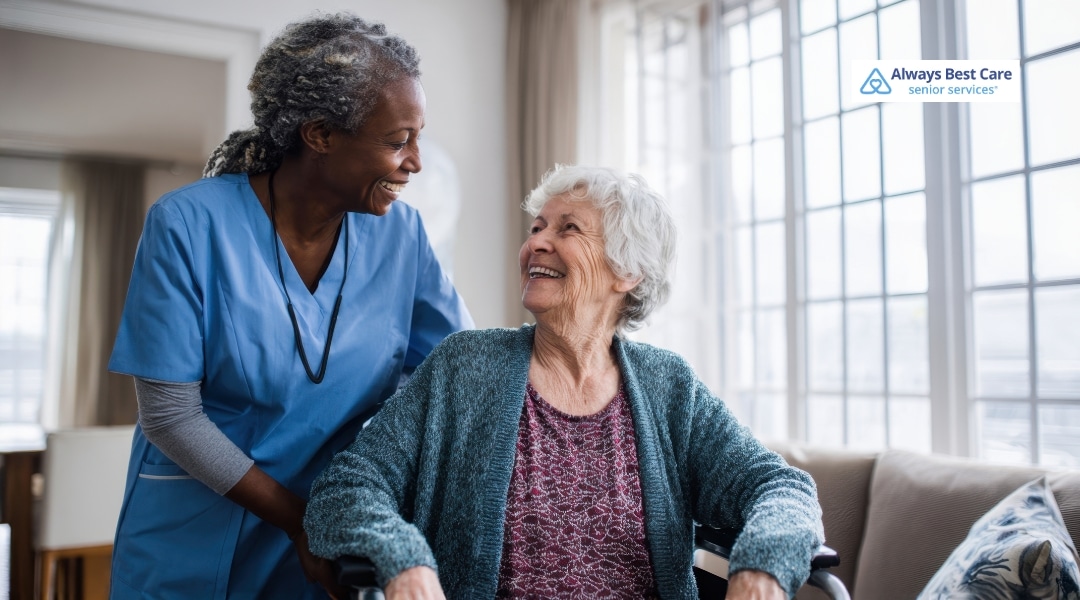Supporting Seniors’ Emotional Well-Being: Understanding Behavioral Health Needs in Spring, TX

Most people think senior care means helping with daily tasks or managing medications. Sure, that’s part of it, but there’s something just as vital that often gets overlooked: emotional wellness.
You know what? Seniors deal with a lot emotionally. They’ve lost friends, watched their independence shift, and sometimes feel invisible in a world that moves too fast. These feelings aren’t just sad; they actually affect physical health in real, measurable ways.
At Always Best Care of Spring, understanding behavioral health needs involves recognizing that a senior’s thoughts, feelings, and mental state are as connected to their overall wellness as blood pressure or blood sugar levels. And frankly, it’s time we started treating them that way.
What you will learn:
- Why behavioral health is just as important as physical health in senior care, and how it directly impacts well-being.
- How to recognize early warning signs of emotional struggles in seniors, such as withdrawal, mood changes, and neglect of self-care.
- Simple ways families can support their loved ones’ emotional health through connection, routine, and engagement.
- How Always Best Care of Spring offers personalized support through genuine companionship, memory care, and emotional wellness-focused services.
Table of Contents
What Does Behavioral Health Actually Mean?
Think of behavioral health as the intersection where emotions meet actions. For older adults, this plays out in daily life through:
Common emotional challenges seniors face:
- Grieving the loss of a spouse, siblings, or longtime friends
- Wrestling with depression that sneaks up slowly
- Feeling anxious about health changes or losing independence
- Navigating memory issues and the confusion that brings
- Adjusting to new living situations or reduced mobility
Healthy emotional wellness helps seniors stay resilient, connected, and engaged with life. When that balance gets disrupted, though, everything else starts to crumble.

Spotting the Warning Signs Early
Here’s the thing, changes often happen gradually. Your mom might skip one book club meeting, then another. Dad stops calling as much. These small shifts matter.
Red flags that deserve attention:
- Pulling away from friends, family gatherings, or favorite activities
- No longer caring about hobbies they once loved
- Sleeping way more than usual, or barely sleeping at all
- Eating patterns that change dramatically
- Snapping at people or seeming perpetually down
- Forgetting to take medications or bathe regularly
- Getting confused about familiar places or becoming easily agitated
Look, aging brings changes, that’s natural. But dismissing these signs as “just getting old” can mean missing something serious that actually has solutions.
The Mind-Body Connection Is Real
Ever notice how stress gives you headaches or worry upsets your stomach? That connection doesn’t disappear with age; it actually gets stronger.
Seniors struggling emotionally often face physical consequences, too. Depression can slow healing after surgery. Anxiety might spike blood pressure. Loneliness weakens the immune system, making someone more vulnerable to illness.
Supporting a senior’s emotional health isn’t some touchy-feely extra; it’s essential healthcare that can literally extend their life and improve its quality.

What Families Can Do Right Now
You don’t need to be a therapist to make a difference. Small, consistent actions create real impact.
Simple ways to support emotional wellness:
- Make time for regular visits, calls, or video chats; connection matters
- Get them moving, even if it’s just a short walk around the block
- Help them stay involved in activities that bring joy
- Listen without trying to fix everything immediately
- Keep those doctor appointments on the calendar
Sometimes, though, families need backup. And that’s perfectly okay.
How We Support Emotional Wellness at Always Best Care
At Always Best Care of Spring, we understand that caring for seniors means caring for their whole selves, heart, mind, and body together.
Our caregivers provide more than task assistance. They bring genuine companionship that fights isolation head-on. They create daily routines that give structure and purpose. They notice the subtle mood shifts that family members might miss from a distance.
What this looks like in practice:
- Regular conversation and engagement that validates feelings
- Encouraging participation in meaningful activities
- Gentle medication reminders that maintain health stability
- Alerting families and healthcare providers to behavioral changes
- Specialized memory care that reduces anxiety through familiar routines
We’re not just checking boxes on a care plan; we’re building relationships that remind seniors they still matter, they’re still seen, and they’re not alone.

Frequently Asked Questions
Q: What exactly is behavioral health for seniors?
A: Behavioral health encompasses emotional, mental, and social well-being. For older adults, it includes managing grief, depression, anxiety, memory challenges, and adapting to life changes that affect mood and outlook.
Q: How do I know if my parent needs behavioral health support?
A: Watch for withdrawal from activities, changes in sleep or appetite, persistent sadness, increased irritability, confusion, or neglecting self-care. These signs shouldn’t be ignored as normal aging.
Q: Can emotional problems really affect physical health?
A: Absolutely. Depression and anxiety can slow recovery from illness, increase heart disease risk, complicate chronic condition management, and weaken immune function. The mind-body connection is powerful at any age.
Q: What makes Always Best Care different for emotional wellness?
A: We focus on the whole person, not just tasks. Our caregivers provide consistent companionship, create meaningful engagement, and communicate behavioral changes to families and healthcare teams, essential elements for emotional health.
Q: How quickly can we get started with care services?
A: We offer free care consultations to assess needs and match the right caregiver with your loved one. Contact us directly to discuss your specific situation and timeline.
Reach Out When You’re Ready
Noticing changes in your loved one’s mood or behavior? That gut feeling you have? Trust it.
Emotional wellness isn’t a luxury for seniors, it’s fundamental to living well. Depression, loneliness, and anxiety don’t have to be inevitable parts of aging, and recognizing that is the first step toward meaningful change.
Behavioral health is a cornerstone of healthy aging, not some secondary concern. The right support can transform not just days, but entire chapters of life.
Call Always Best Care of Spring at (832) 585-1941 today to schedule a care consultation. Let’s talk about how our caregivers can support your loved one’s emotional, social, and physical well-being—because everyone deserves to age with dignity, connection, and joy.





